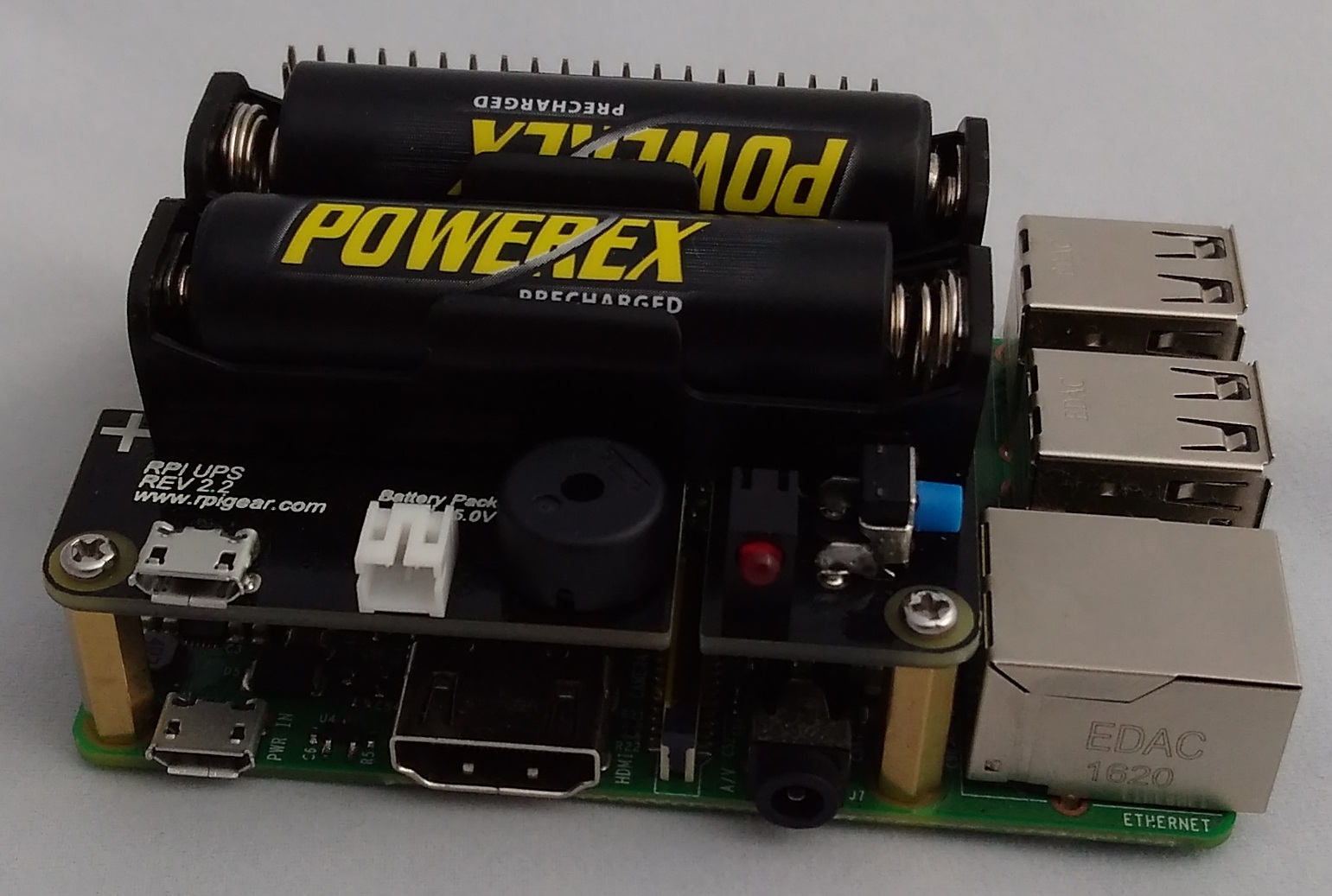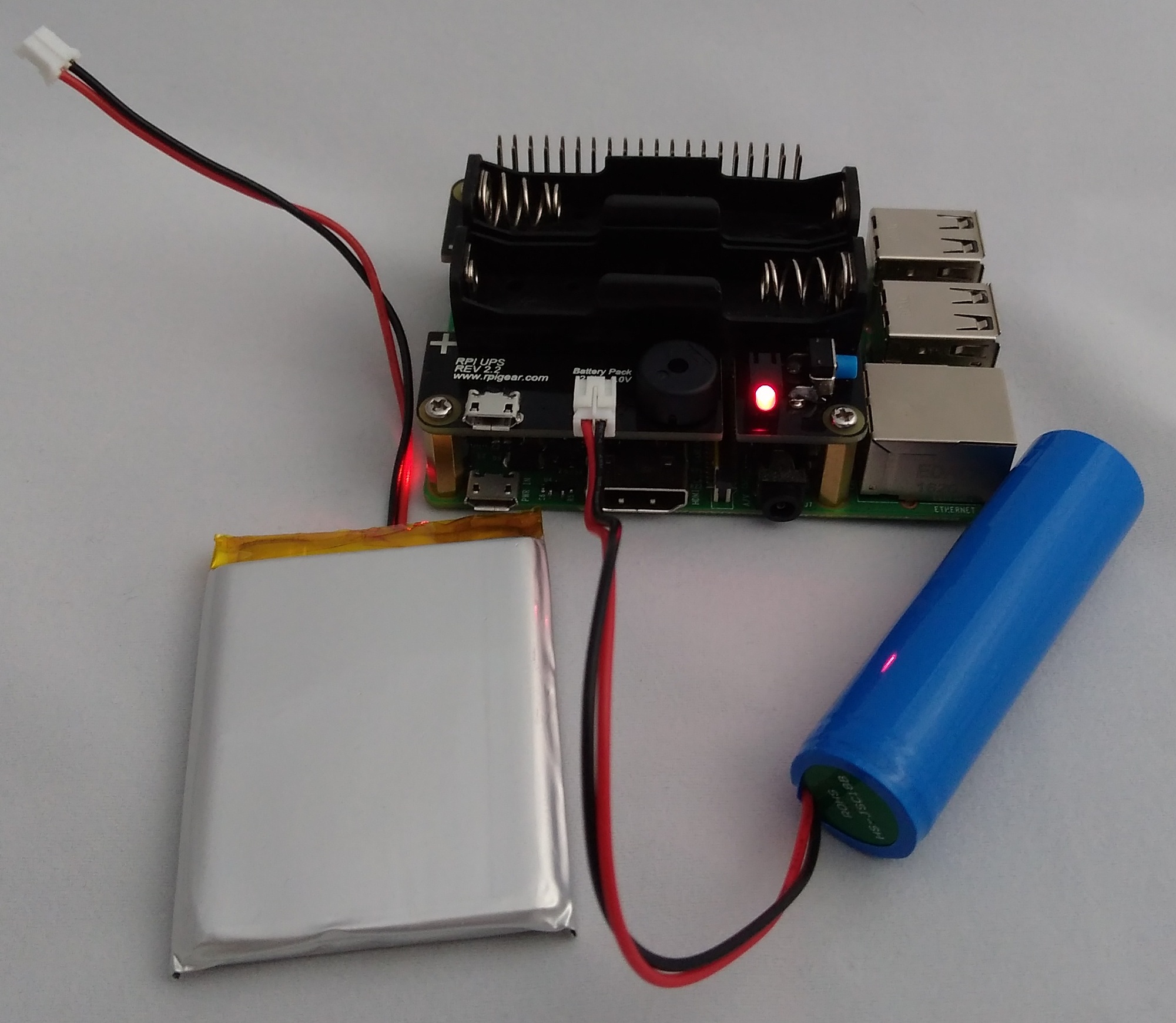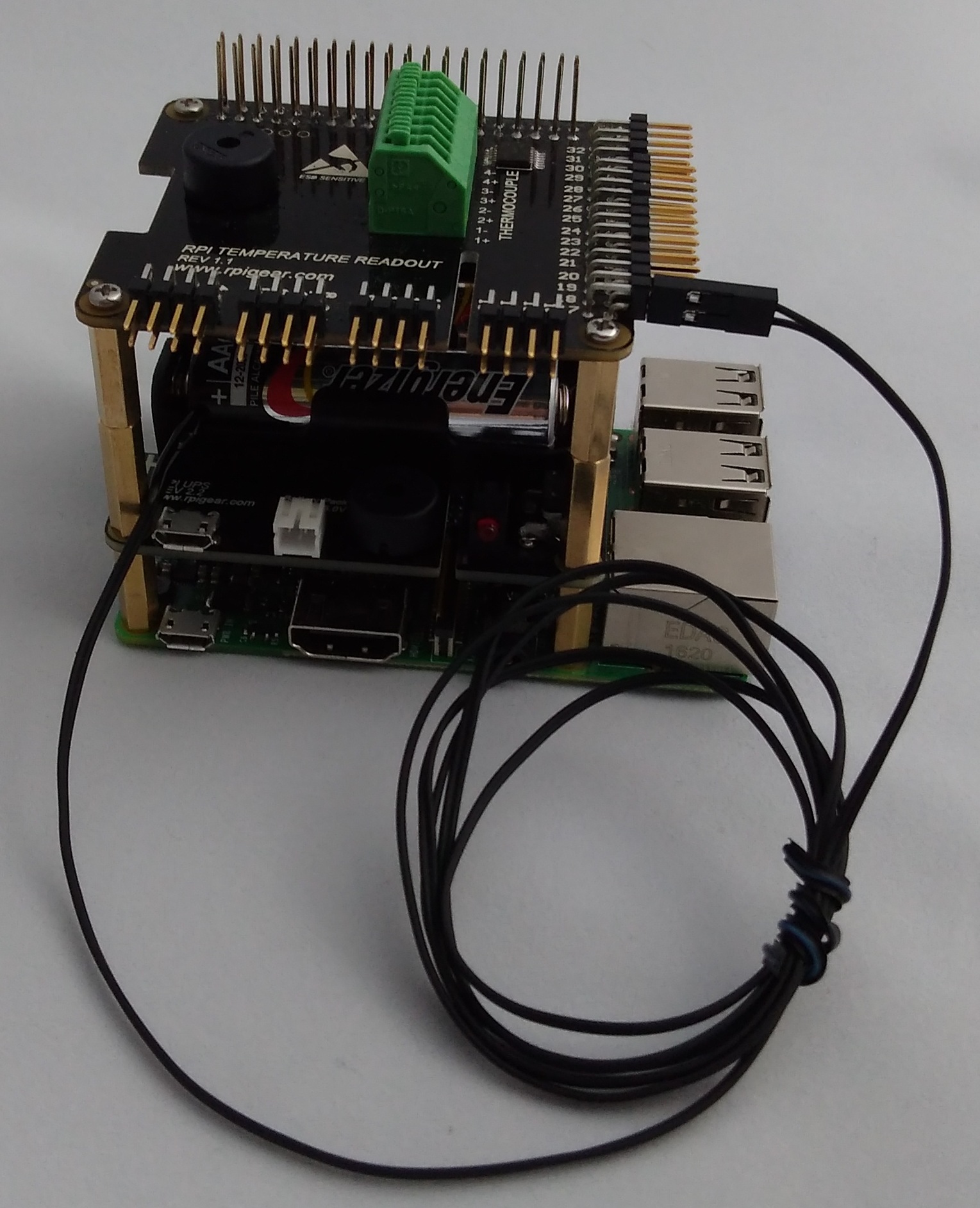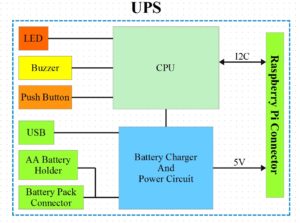Overview
The Raspberry Pi UPS is used to run the Raspberry Pi from batteries, or as a general power backup.
Main Features
-
Operates from two AA batteries or a battery pack
-
Supports Alkaline, NIMH, and Lithium batteries
-
Integrated battery charger with auto and manual modes
-
Stackable architecture and configurable I2C address allow the UPS to coexist with other daughter cards/hats.
-
Advanced features for remote operation, including low power sleep mode and various wake up sources(battery level, timed alarm, USB power stable).
-
UPS events logging to /var/log/messages
Applications
-
Robotics
-
Home automation
-
Remote sensing and telemetry
Downloads
Datasheet
User Manual
Quick Start Guide
Linux Software 1.1 1.2
Purchasing
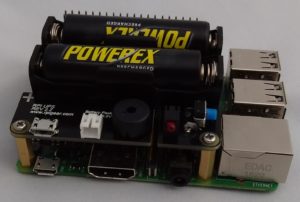
- Solar Power Module for Raspberry Pi
- Mounting Hardware(fem/fem standoffs x 4, M2.5 screw x 8)
- quick connect crimp terminals(4 pieces)
- Note: Raspberry Pi and batteries are not included.

- Stacking hardware to connect multiple temperature readout boards
- 4 x male/female extra tall m2.5 standoffs
- 20x2 male female stacking connector
- Part# RPI-STK-KIT-1
FAQ
Which versions of the Raspberry Pi are supported ?
PI 1 Model A+, PI 1 Model B+, PI 2, Pi Zero, PI 3, Pi 4.
Note:
The UPS has a micro USB connector(not USB C), for the Pi 4 please use the older style power supplies that have micro USB connectors.
AA batteries will struggle to power a heavily loaded Pi 3 or Pi 4, please consider using Litium Ion or Lithium Polymer packs in high power consumption
applications such as high def video output or when powering multiple USB peripherals.
What types of batteries are supported ?
The UPS supports any AA batteries as long as the combined(in series) voltage of the two cells is less than 5V. For example standard 1.5V Alkalines, Energizer 1.5V AA Lithiums, and all NIMH batteries. Standard 3.7V Lithium Ion or Polymer packs are supported as well. Be sure to disable the battery charger when using non rechargeable batteries.
How long will my Raspberry Pi run from batteries ?
AA batteries can provide between an hour and two hours of runtime for light loads such as a Pi Zero without any USB peripherals. Lithium packs are a better choice for the more power hungry Raspberry Pi models and when USB peripherals are connected.
Will Alkaline AA batteries be depleted over time under normal conditions ?
As long as USB power is present and the UPS is not running from batteries, the current drain of the batteries will be small(about 20 micro amps, details in datasheet). This means the batteries will not need replacing for many years as long as the USB power is stable.
What type of USB power supplies can be used ?
A 1A supply should be adequate for a Pi Zero and Pi A+, for all other models a 2A or 2.5A supply should be used.
What is low power sleep mode and wakeup ?
This feature is targeted at remote sensing/monitoring applications that need to save energy. For example if the Pi needs to take a photo once per hour and send it over an RF link, the UPS can turn the power off and turn it back on an hour later. During the off period, only uA(micro amps) of current are drawn greatly extending battery life.
Can I connect a solar charger to the USB input ?
Yes, as long as the voltage output doesn’t exceed 5.5V. Because the battery charger circuit works during sleep mode, even small low power solar chargers can be used. Please see the -battery_wake_up_<on/off> <voltage> command that allows the UPS to wake up after the battery is charged to the specified level.
Can I use the UPS in my car ?
The UPS needs a standard 5V USB input, please connect a third party 12V to USB power supply between the UPS and the car's battery.
